Search the Special Collections and Archives Portal
Search Results

Protestors outside of U.S. Department of Energy Building: photographic slide
Date
Archival Collection
Description
From the Sister Klaryta Antoszewska Photograph Collection (PH-00352). One of the signs read, "NUCLEAR ACCIDENTS WE PLAN THEM IN NEVADA". Another sign reads, "ZERO NUCLEAR WEAPONS".
Image
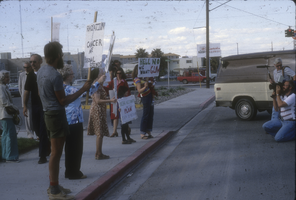
Protestors outside of U.S. Department of Energy Building: photographic slide
Date
Archival Collection
Description
From the Sister Klaryta Antoszewska Photograph Collection (PH-00352). One of the signs read, "RADIATION & CANCER ARE PERSONAL FRIENDS" . Another sign reads, ""NUCLEAR ACCIDENTS WE PLAN THEM IN NEVADA". Another sign reads, "HELL NO WE WON'T GLOW".
Image

Protestors outside of U.S. Department of Energy Building: photographic slide
Date
Archival Collection
Description
From the Sister Klaryta Antoszewska Photograph Collection (PH-00352). One of the signs read, "STOP STORING NUCLEAR WASTE IN NEVADA".
Image
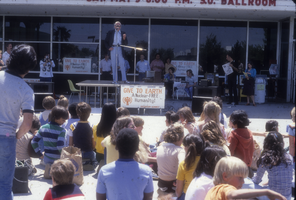
Protestors outside of UNLV Moyer Student Union: photographic slide
Date
Archival Collection
Description
From the Sister Klaryta Antoszewska Photograph Collection (PH-00352). Someone speaking standing on a table. The poster on the table reads, "GIVE TO EARTH A NUCLEAR-FREE HUMANITY! SAGEBRUSH ALLIANCE.
Image
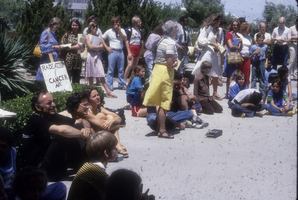
Protestors outside of UNLV Moyer Student Union: photographic slide
Date
Archival Collection
Description
From the Sister Klaryta Antoszewska Photograph Collection (PH-00352).
Image
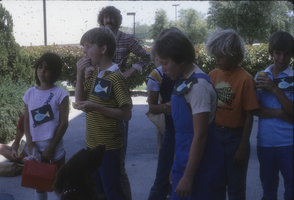
Unidentified protestors outside of UNLV Moyer Student Union in Las Vegas, Nevada: photographic slide
Date
Archival Collection
Description
From the Sister Klaryta Antoszewska Photograph Collection (PH-00352).
Image
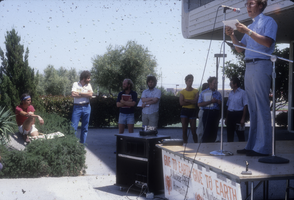
Unidentified protestors outside of UNLV Moyer Student Union in Las Vegas, Nevada: photographic slide
Date
Archival Collection
Description
From the Sister Klaryta Antoszewska Photograph Collection (PH-00352).
Image
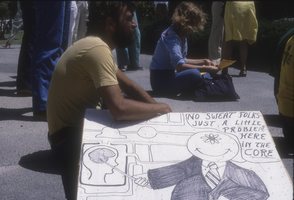
Unidentified protestors outside of UNLV Moyer Student Union in Las Vegas, Nevada: photographic slide
Date
Archival Collection
Description
From the Sister Klaryta Antoszewska Photograph Collection (PH-00352). An artistic protest poster reads, "No sweat folks, just a little problem here in the core."
Image
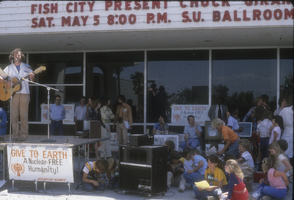
Unidentified protestors outside of UNLV Moyer Student Union in Las Vegas, Nevada: photographic slide
Date
Archival Collection
Description
From the Sister Klaryta Antoszewska Photograph Collection (PH-00352). A banner attached to a stage reads, "Give to Earth A Nuclear-Free Humanity. Sagebrush Alliance"
Image

Unidentified protestors outside of UNLV Moyer Student Union in Las Vegas, Nevada: photographic slide
Date
Archival Collection
Description
From the Sister Klaryta Antoszewska Photograph Collection (PH-00352).
Image
